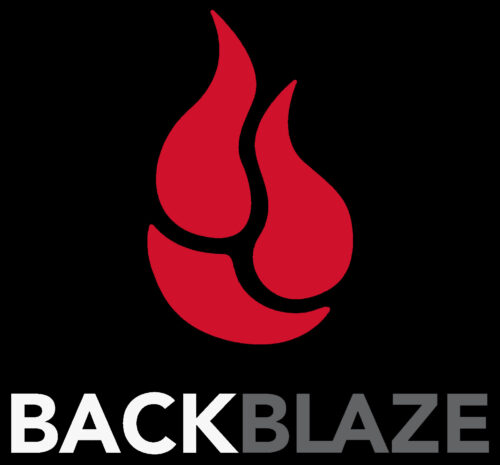Knowledge Is Power: Oath: AOL, Yahoo, and Verizon Privacy Agreement
Thanks in part to the recent Facebook role in Russian-financed election meddling, and to the General Data Protection Regulation (GDPR) going into full effect in a week, websites and organizations are having their arms twisted to provide at least some level of transparency into how they collect and use your data.
Most of us use the internet with free abandon–never giving thought as to how this site or the next provide such wonderful conveniences and benefits without asking anything in return. But this is a Faustian bargain. In many cases, everything you do before, during, and after your site visit is logged. Many of these sites truly do know more about you than your mother.
To give just one example (more to come in the following weeks), let us look at the Privacy Agreement for Yahoo and AOL, now part of Verizon and the Oath. The full text of the agreement may be found at <https://policies.oath.com/us/en/oath/privacy/index.html>.
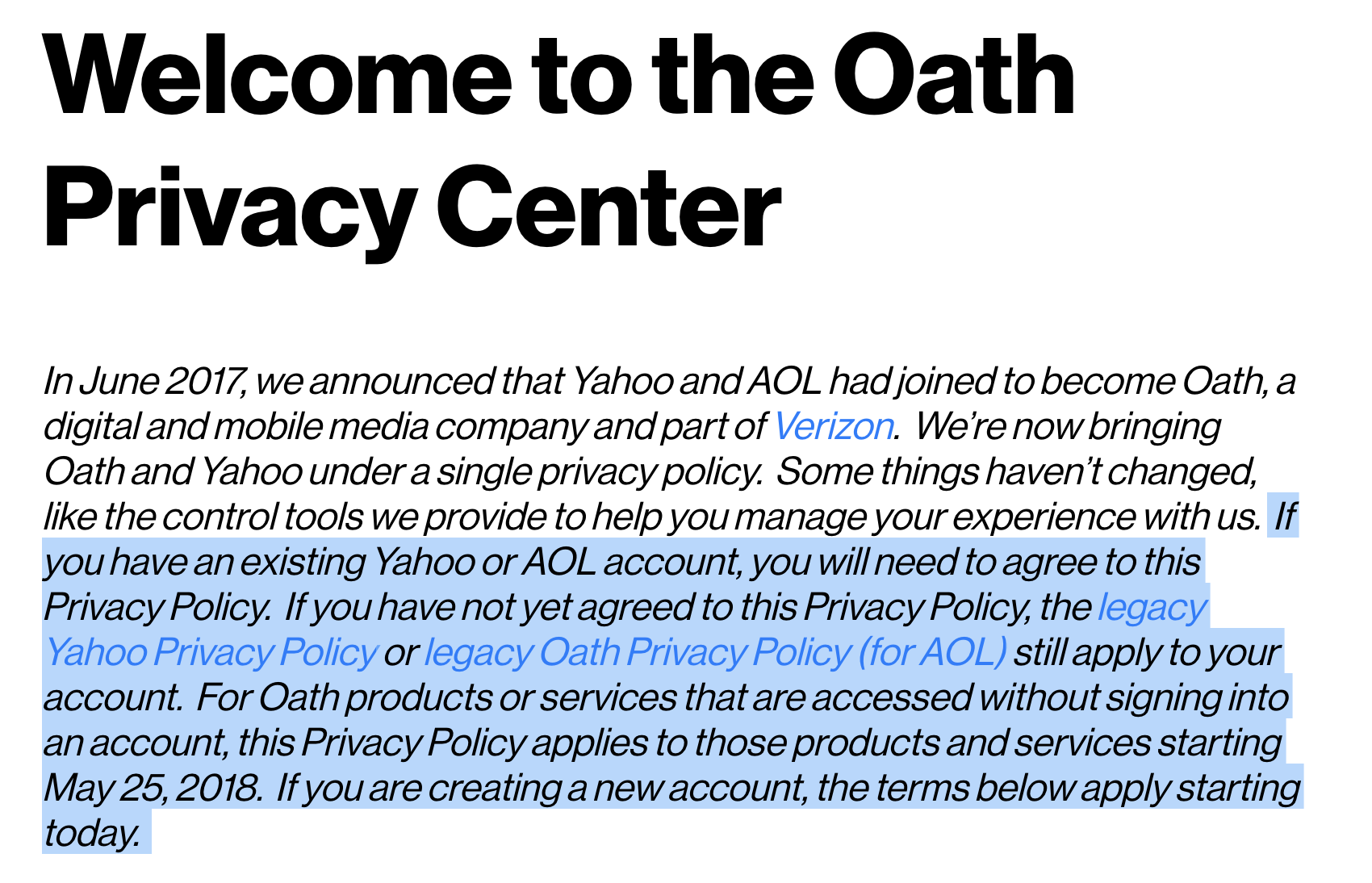
Understand that:
A) If you have an existing Yahoo or AOL account, you need to agree to this policy.
B) If you haven’t agreed to this policy, it will go into effect May 25, 2018 regardless of your agreement status.
C) In otherwords, we don’t give a damn about what you think, say, or do. This agreement applies to you.
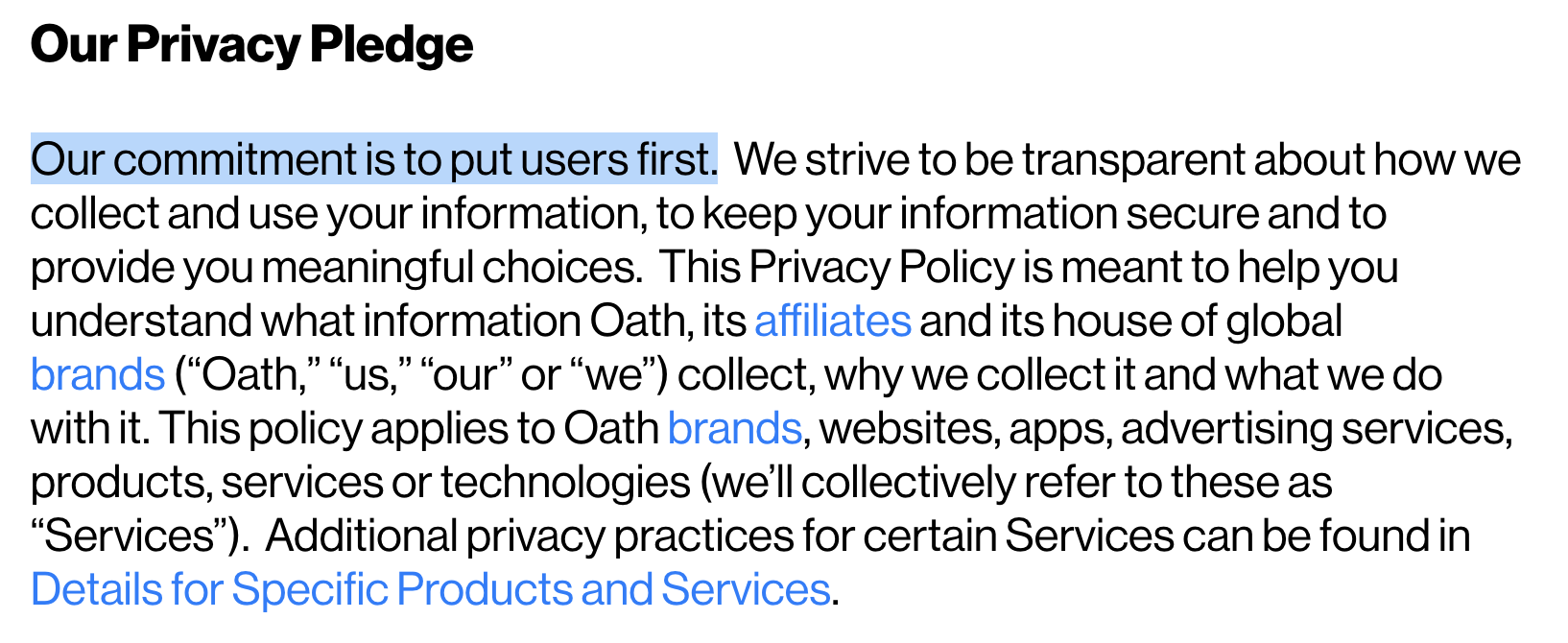
I feel all warm and fuzzy inside knowing that they “put users first”. Well, not really. If they put users first, you and I would have had opt-in options long ago, instead of being automatically opted in. Somewhat contradicting the draconian first paragraph.

If they believed you should have tools to control your information, why did it take so freakin’ long for them to let us know they even existed? Why no opt-in options, just automatic opt-in.
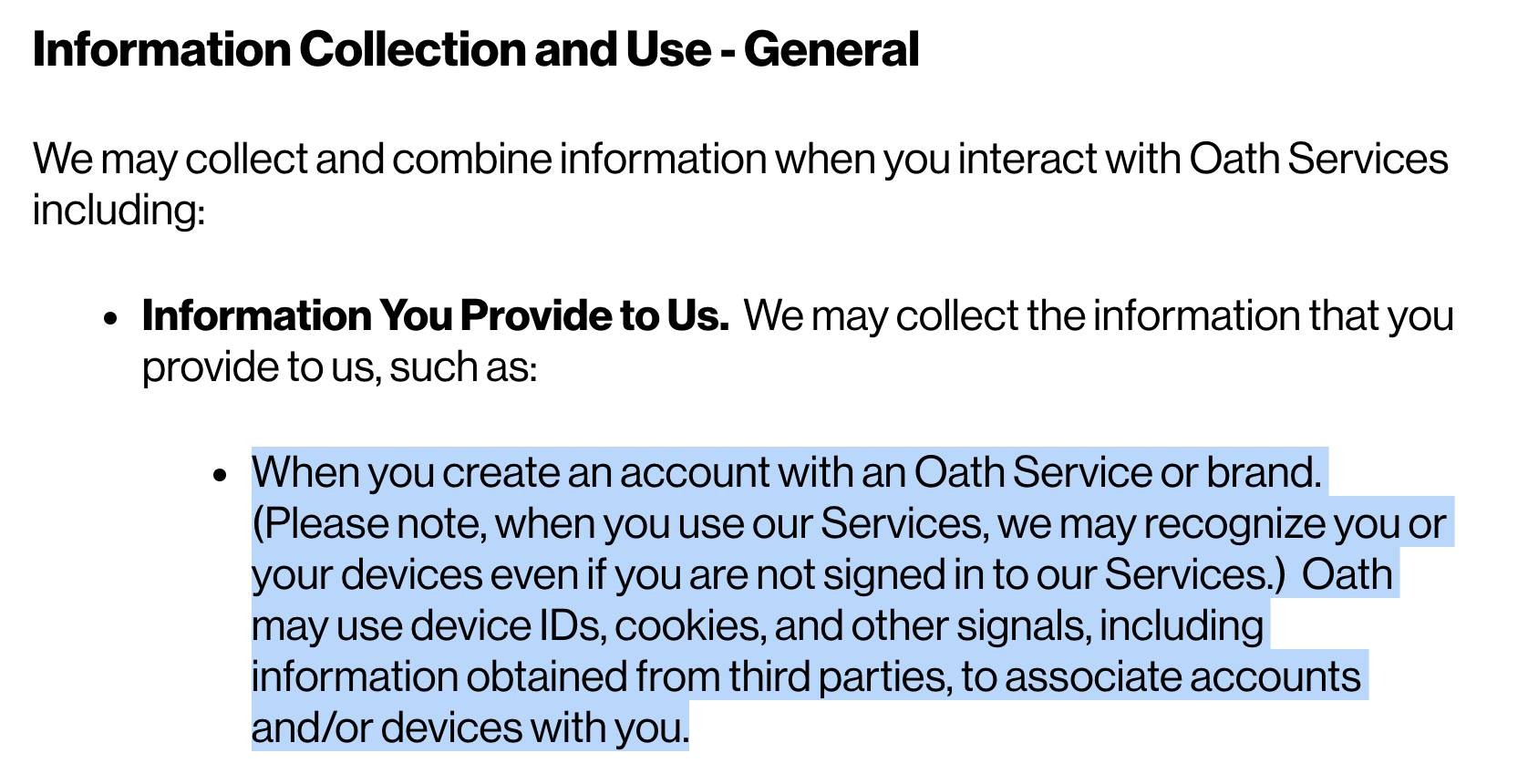
When you create an account with Yahoo, AOL, Verizon, or any one of the many other Oath brands, you are giving them permission to track your online activities, giving access to your device, ID, cookies, even data available from non-Oath services.
The next two paragraphs get even better:
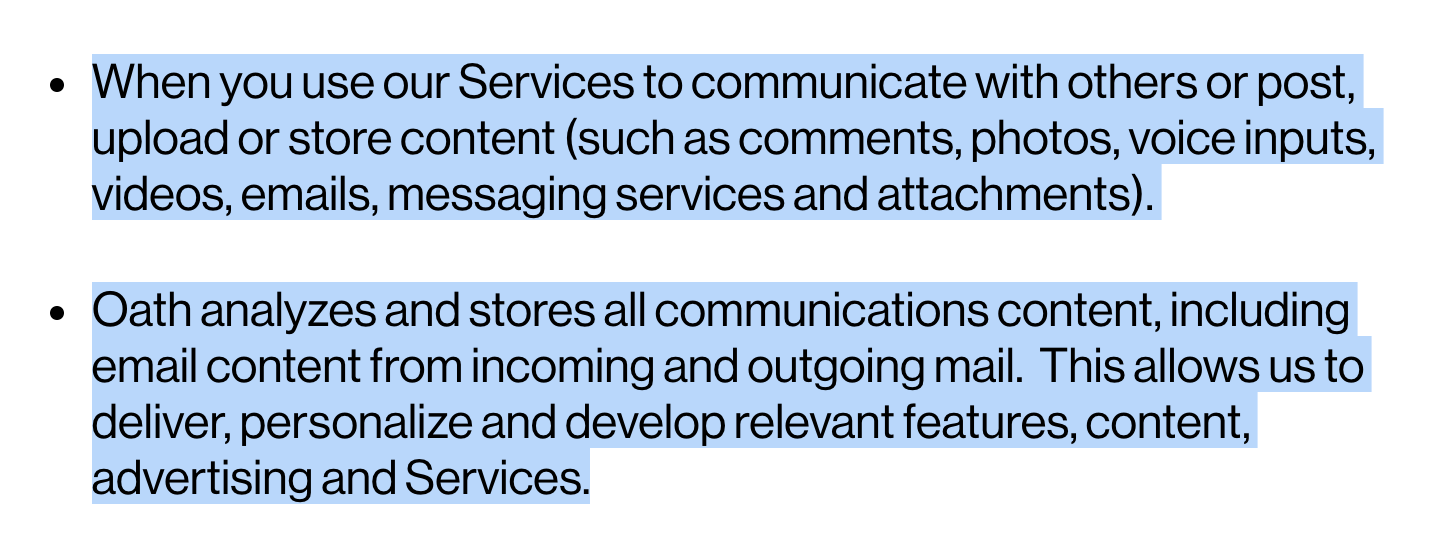
You read this correctly, you have willingly or unwillingly (they really don’t care. Remember the first paragraph?) agreed to allow them to read, analyze, log, and sell information regarding your PRIVATE photos, voice, video, emails, texts, and attachments.
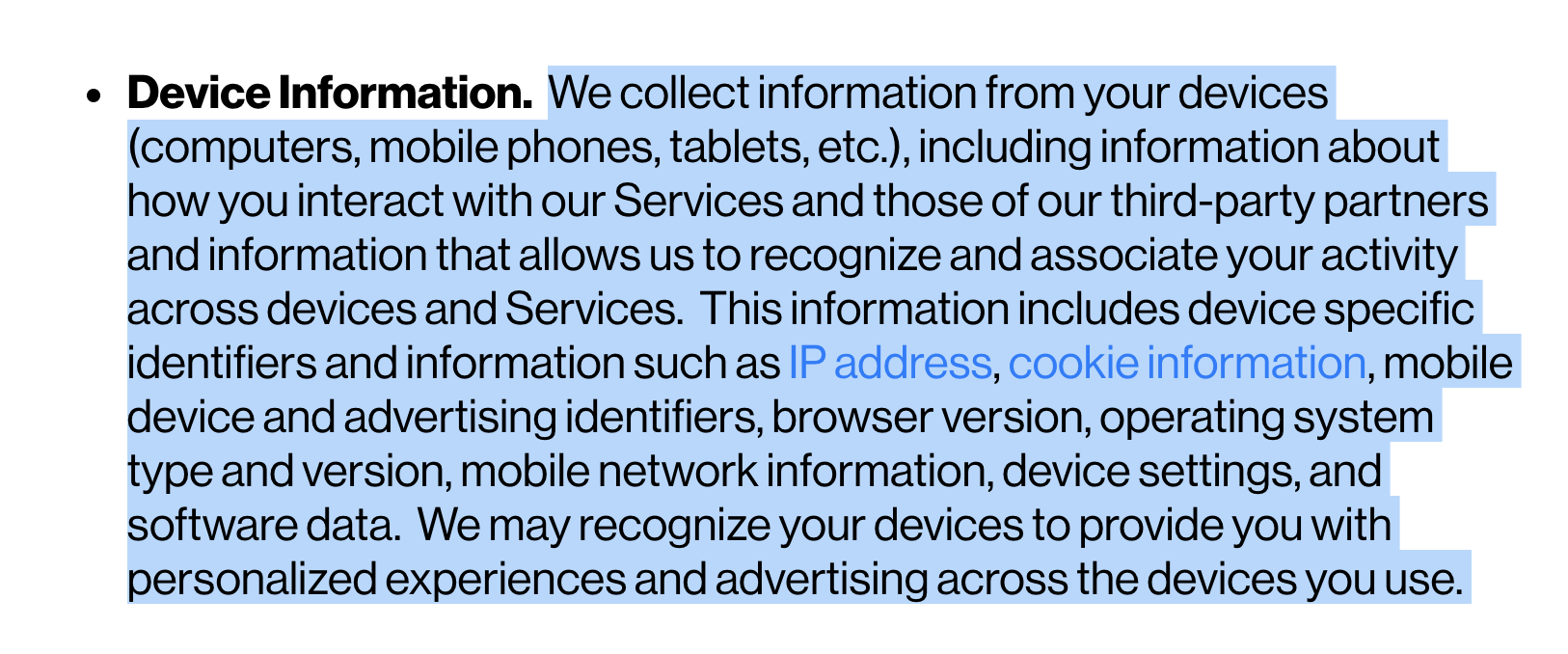
They are just telling us again (remember, this is about transparency) that they will track you by your device, harvest whatever they can not only from the device, but also third-parties. All to provide you with “personalized experiences and advertising across the devices you use.”

Not only are all of your online activities monitored, recorded, analyzed, and sold, but you have given permission to track your location. Remember, your cell phone is nothing if not a location beacon.
The Privacy Agreement goes on for another few pages, pretty much just repeating itself over and over. I suspect the real purpose is to put the reader into a trance-like state so that ramifications of the agreement simply cannot sink in.
As A Side Note…
It may bear remembering that one of the Oath companies that you have just given away all your privacy rights is the same company that had not 1, but 2 of the largest security breaches in history. Yahoo. Yeah. That’s who I want to continue harvesting my data.
What To Do About It?
Understand that the only thing the enterprise is concerned about is money. Not you, not me, not doing good, not serving society. Money.
The Oath brands can be found at <https://www.oath.com/our-brands/>, and include: AOL, Autoblog, BrightRoll, Build, Built By Girls, Engadget, Flurry, Huffpost, Kanvas, Makers, Rivals, Ryot, TechCrunch, Tumblr., Verizon, Yahoo,
Have a heart-to-heart with yourself as to whether or not you want to give money to an organization that treats you like this. And if you decide it is not such a good trade, stop doing business with those who do not have your best interest in mind. There is a competitor available. Always.


